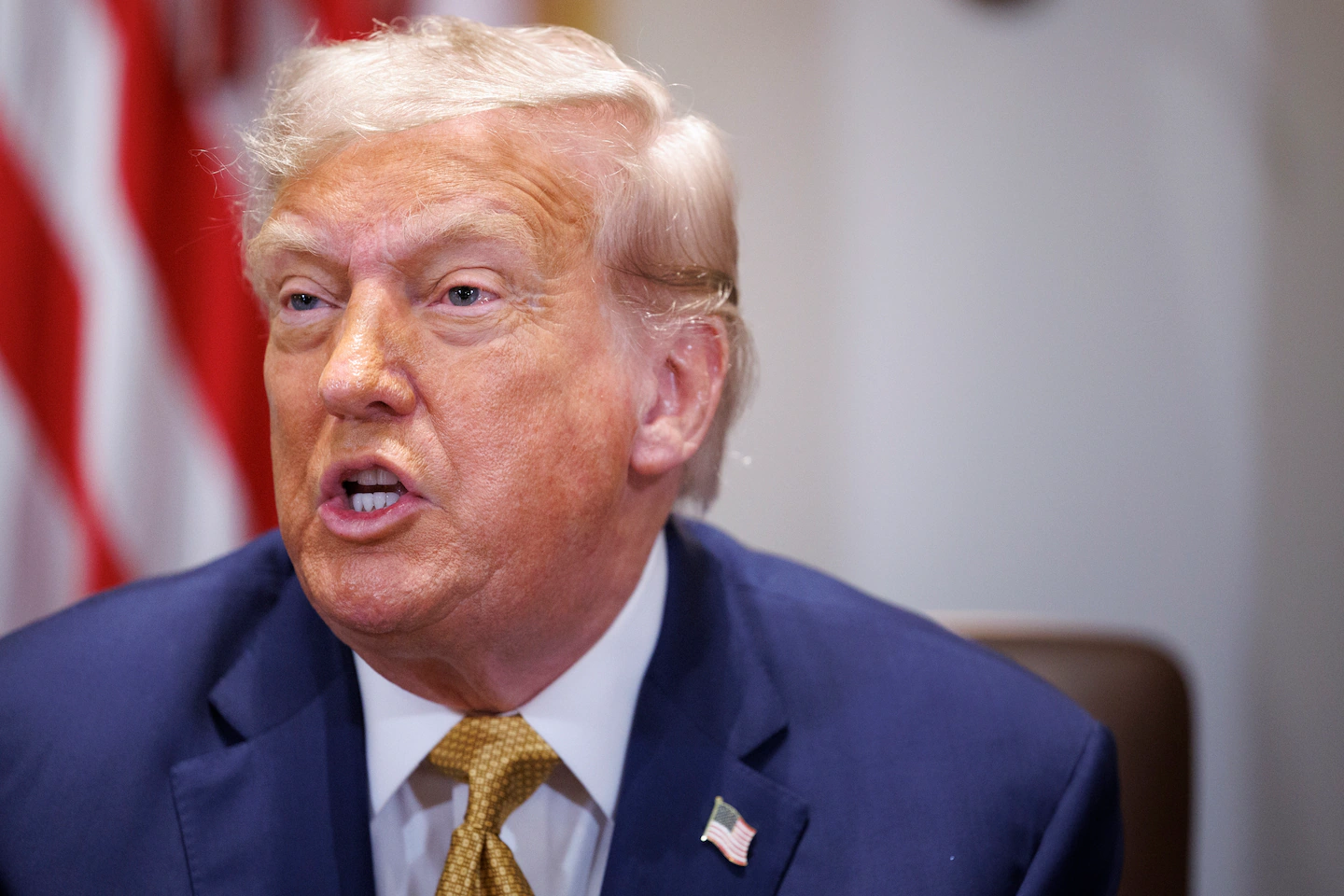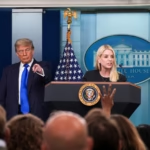Trump’s announcements took aim at two of the United States’ largest trading partners and threatened to upend the global economy if he actually implements the new tariffs.
Last year, U.S.-E.U. trade in goods totaled nearly $1 trillion. The U.S. and Mexico are linked in a North American trading zone under a trade agreement negotiated during Trump’s first term, with almost $840 billion in goods passing between them.
High tariffs on Mexican goods would batter U.S. automakers that rely on factories south of the border for key parts and would impose higher prices on American consumers on everyday products such as tomatoes, avocados, watermelons and alcohol.
Trump has spent the past several days sending letters to world leaders, alerting them to new tariffs the United States planned to impose on their goods. Because there are still nearly three weeks before the duties go into effect, the announcements could be a negotiating move to gain leverage.
Tariffs are taxes that American importers pay to U.S. Customs and Border Protection to bring foreign products into the United States. The financial burden can ultimately be shared among the U.S. importer, foreign producer and consumers.
So far this year, importers and foreign manufacturers have each swallowed about 40 percent of the tariffs’ costs while consumers have paid 20 percent in the form of higher prices, economists at Goldman Sachs said Friday in a note to clients.
Since returning to the White House in January, the president has issued myriad tariff threats only to cancel or delay most of them soon after. Business executives and foreign leaders say they have learned not to take every White House trade statement at face value.
Numerous American companies have complained that Trump’s on-again, off-again tariffs are damaging their bottom lines. Small businesses have been especially hard hit, fearing that the added costs will hurt their ability to remain competitive and profitable, according to the U.S. Chamber of Commerce.
The uncertainty has been compounded by legal challenges to Trump’s claim of a “national emergency” authorizing his widespread tariffs. A federal appeals court is scheduled to hear arguments on July 31 in a case that could render invalid all of the tariffs Trump imposed beginning April 2.
In May, the federal Court of International Trade ruled that the president had exceeded his authority by unilaterally imposing “emergency” tariffs. The administration immediately appealed and a final decision is likely later this year.
Von der Leyen said Saturday that the E.U. was ready to continue negotiations but also indicated it would consider retaliatory steps. The European Commission, the E.U.’s executive body, has prepared a list of American products to hit with retaliatory tariffs if negotiations fail.
“Imposing 30 percent tariffs on E.U. exports would disrupt essential transatlantic supply chains, to the detriment of businesses, consumers and patients on both sides of the Atlantic,” she said.
The letter is a curveball for European officials who spent weeks making calls to the White House and traveling to Washington to put together a deal that would bring some tariff relief and avert a spiraling trade war.
E.U. officials had largely expected in recent days to be spared one of Trump’s Truth Social posts. The bloc had reluctantly acquiesced to a skeletal deal that would keep a baseline of 10 percent U.S. tariffs on most goods, and leave a resolution of thorny trade disputes to further negotiation.
Brussels and Washington were drawing up an “agreement in principle” that would include exemptions from U.S. tariffs for key industries such as alcohol and aircraft, and the two sides engaged in talks to reduce a 25 percent U.S. levy on cars.
The E.U. was also ready to pledge to buy more U.S. goods, notably weapons and liquefied natural gas. But Trump’s letter contained an ultimatum that Brussels is unlikely to accept.
“The European Union will allow complete, open Market Access to the United States, with no Tariff being charged to us, in an attempt to reduce the large Trade Deficit,” the president wrote.
Trump has complained about the E.U.’s 10 percent tariff on imported automobiles. But the bloc’s average tariff is 2.8 percent, not much different than the 2.2 percent average charged by the U.S., according to the World Trade Organization.
Italian Prime Minister Giorgia Meloni, who has positioned herself as a Trump whisperer in Europe, offered hope that a tit-for-tat could be averted.
“It would make no sense to trigger a trade war between the two sides of the Atlantic,” her office said in a statement. “It is now essential to remain focused on the negotiations, avoiding polarization that would make reaching an agreement more difficult.”
In his letter to the Mexican president, Trump demanded that Mexico eliminate cross-border shipments of illicit drugs.
Trump imposed tariffs on Mexican goods earlier this year, citing concerns over trafficking in fentanyl and illegal migration. The Mexican government responded by deploying troops to the U.S.-Mexico border and stepping up cooperation with American law enforcement.
“BUT, what Mexico has done, is not enough. Mexico still has not stopped the Cartels who are trying to turn all of North America into a Narco-Trafficking Playground. Obviously, I cannot let that happen!” Trump wrote.
The letters Trump dispatched to more than two dozen countries in recent days were all nearly identical, complete with random capitalizations, typos and other errors. The notification to von der Leyen, for example, referred to the European Union as “a country.” The E.U. is a governing bloc that joins 27 separate nations.
On April 2, Trump announced steep tariffs on more than 60 nations in a bid for more balanced trade or what he called “reciprocity.” The United States buys far more from the rest of the world than other nations buy from American businesses, leading to a $1.2 trillion trade deficit last year.
On Saturday, Mexico noted that it has been in active discussions with the U.S. to make sure they have an agreement in place to avoid tariffs being imposed on Aug. 1. “In other words, Mexico is already in negotiations,” the country said in a statement.
Mexicans have been baffled at Trump’s jabs at Sheinbaum over fentanyl trafficking. She has reversed a policy of “hugs not bullets” adopted by her predecessor, Andrés Manuel López Obrador. She has sent thousands of troops to the border, ramped up arrests of cartel members and transferred 29 drug bosses to the United States.
Trump also blames years of chronic trade deficits for hollowing out U.S. manufacturing. Most mainstream economists say Americans benefit from trade in the form of lower prices and greater product availability. Manufacturing employment in the U.S. has steadily declined since 1979 largely because of automation, those economists say.
Financial markets recoiled from the president’s early-April announcement with stocks sinking by 12 percent in less than a week and yields on Treasury securities rising by the largest amount since 1982.
The president retreated, pausing his tariffs for 90 days to allow for negotiations. That hiatus expired Wednesday, to be replaced by a flurry of new tariff announcements and a new self-imposed deadline of Aug. 1 for any negotiated deals.
After the White House teased “90 deals in 90 days,” Trump has agreed on the outlines of two deals with the United Kingdom and Vietnam, and has announced a truce in a tariff war with China.
On Thursday, he threatened to impose a 35 percent tariff on Canada starting Aug. 1. He also announced last week a 50 percent tariff on goods from Brazil.



